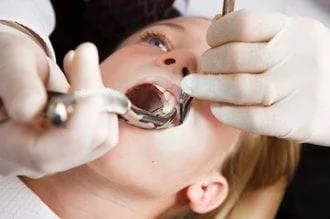
A Brief Overview of Extractions
Wisdom teeth extractions are quite common, because these teeth typically cause major problems for people when they try to protrude through the gums. One of the most common issues with wisdom teeth is that they can easily become impacted. This means that they try to come in angled, rather than straight through the gum line. This can cause the tooth to partially emerge, grow in unevenly, and it can be incredibly painful as well.
If a wisdom tooth partially emerges through the gum line, an operculum or skin flap may develop over the tooth. This can make cleaning the tooth very difficult, and food particles could become lodged under the flap of skin. In addition, the area can easily become infected and pericoronitis could develop. The issue will usually go away without assistance, but it can cause pain and swelling.
Wisdom teeth and impacted teeth can cause infections and other problems, so they often need to be removed. Extractions can be for 1 tooth or for many of your teeth at once, and a local anesthetic may be given to numb the extraction area, depending on your patient/dentist preferences. If you are anxious about the procedure, a general anesthetic may be given as well. This will keep you sedated until the procedure is complete.
During the procedure, the gum tissue surrounding the wisdom tooth will be cut open to expose the tooth. The tooth will then be loosened by tightly gripping it and moving it back and forth until it can be pulled out of the gums. Wisdom teeth generally come out without any issue, but occasionally they may be impacted so much that they will break up before being removed. Depending on the extraction area and incision, sutures may be needed to close the area. Soluble sutures are most commonly used, because they dissolve on their own.
You will need plenty of rest after having wisdom teeth extracted. Due to the anesthesia, you will not be able to drive after having the surgery. The extraction site may bleed for a few hours, but gauze can be applied to minimize it. If the bleeding lasts for more than 24 hours, you will need to call your dentist. You should never lie flat, because this increases bleeding. Instead, stay propped up on pillows while resting. The dentist will prescribe pain medication in most cases, and ice packs can be used to lessen the pain as well. It is advised to only eat soft foods for several days after the surgery.
Recommended foods are:
- Gelatin
- Ice Cream
- Mashed Potatoes
- Pudding
- Thin Soups
- Yogurt
- Other Foods That Can be eaten without Chewing
Do not use a straw when drinking, because sucking can cause the sutures to loosen. This could cause the clotting process to slow down. You should not smoke either. Call today if you need additional information.